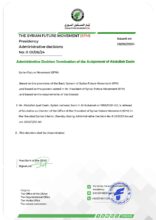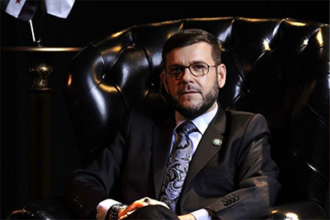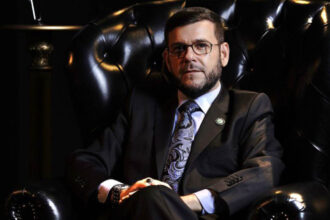Artisans: Role and Importance

Introduction:
Artisans are the backbone of any society, representing its heritage and authenticity. They are individuals who practice specific crafts that require manual skills and traditional knowledge passed down through generations. These artisans are the creators of the tools and objects we use daily, thus preserving the cultural and civilizational heritage of societies. They are also responsible for providing essential community services such as plumbing, construction, tailoring, carpentry, blacksmithing, and more.
The work of an artisan relies on understanding raw materials and their properties, as well as knowledge of the techniques and methods used in crafting products. As such, they are an integral part of the social fabric of any country, playing a vital role in passing down knowledge and skills from one generation to the next.
Artisans produce goods and services that meet society’s needs across the ages, whether they are essential, complementary, or decorative. Craftsmanship is also a source of income for many people, supporting the local economy and promoting tourism. Additionally, artisans are capable of innovating new products and developing the techniques they use, which contributes to economic diversification.
Current Challenges:
Artisans in our time, especially in Syria, face numerous challenges. These challenges threaten the survival of their crafts and heritage, and are further exacerbated in countries experiencing conflict and war, such as Syria.
General Challenges Facing Artisans:
- Intense Competition: Handcrafted goods face strong competition from cheap, mass-produced industrial products that are readily available.
- Lack of Young Workforce: Younger generations tend to prefer working in other sectors that offer higher wages.
- Difficulty in Marketing Their Products and Reaching Markets: Especially international markets.
- Technological Changes: Preserving traditional crafts requires adapting to technological advancements, which can be difficult for traditional artisans.
- Shortage of Raw Materials: Especially natural materials necessary for producing their goods.
- Lack of Government Support: Handicrafts often suffer from insufficient government support in terms of funding or facilitating resources.
Specific Challenges Facing Artisans in Syria:
- War and Destruction: The war in Syria has destroyed many artisan workshops and displaced craftsmen, leading to the loss of a significant amount of knowledge and skills.
- Severe Economic Crisis: Syria’s ongoing economic crisis has caused raw material prices to skyrocket and reduced citizens’ purchasing power.
- Due to the Siege and War: Artisans face difficulties in obtaining the raw materials necessary for producing their goods.
- Power Outages: Frequent power cuts severely impact artisans who rely on electricity to operate certain tools.
- Migration of Artisans: Due to the dire situation in Syria, many artisans have emigrated to other countries in search of better job opportunities.
The Importance of the Role of Artisans:
Artisans play a central and essential role in society, forming an important pillar of the cultural and economic heritage of any country, especially in a country rich in history and civilization like Syria.
The importance of artisans lies in several aspects, including:
- Preserving cultural heritage: Artisans are the guardians of cultural heritage, passing their skills and knowledge from one generation to the next, which helps preserve the cultural identity of the community.
- Economic development: Handicrafts contribute to local economic growth by creating jobs and providing income for many families. They also help diversify income sources.
- Artisans are a source of innovation and creativity: They are always seeking new ways to develop their crafts and products.
- Handcrafted products attract tourists and help boost local tourism.
- Handicrafts contribute to sustainable development by using natural materials and reducing waste.
As for the importance of artisans in Syria specifically:
- Preserving national identity: Syrian handicrafts are an integral part of the country’s national identity, reflecting its history and civilization.
- Cultural resistance amid the crises in Syria: Handicrafts serve as a means of resisting oblivion and extinction, preserving collective memory.
- The only source of income for many Syrians: Especially in rural areas.
- Promoting Syria: Syrian handcrafted products help introduce Syria and its civilization to the world.
As for the role of artisans in changing the political reality in Syria, it can be said that artisans are not just creators of objects, but also preservers of heritage and bearers of cultural identity. However, can artisans influence the political reality? This is an interesting question, especially in the context of the events Syria is going through.
The answer, in our view, is neither straightforward nor simple, but we can explore some aspects that show an indirect influence of artisans on the political reality, such as:
- Cultural resistance: Preserving traditional crafts amidst crises and conflicts is a form of cultural resistance. It affirms Syrian identity and continuity, challenging regimes that seek to erase identity and destroy heritage.
- Social solidarity through artisans supporting one another: By building strong social networks, artisans foster solidarity and cooperation among community members, regardless of the ongoing political fragmentation. These networks can even serve as the foundation for broader social movements.
- Economic influence: Handicrafts can be a sustainable source of income for many Syrian families, especially in rural areas. This contributes to societal stability and poverty reduction, ultimately lowering social tensions that could lead to conflicts.
- Alternative narrative: Handicrafts offer an alternative narrative for Syria, different from the image of destruction and devastation often portrayed by the media. This positive narrative can help in building a better future for the country.
- Cultural exchange: By participating in international exhibitions and festivals, which we encourage to activate and promote, Syrian artisans can introduce their heritage and civilization to others, thus building bridges of communication with other nations, potentially supporting the Syrian cause.
However, we must recognize that the impact of artisans on the political landscape is indirect and long-term. It is unrealistic to expect artisans to play a direct revolutionary role, but they can contribute to building a strong and cohesive community. Ultimately, this community can influence the course of political events.
Negatives of the Role of Artisans:
The question about the negatives of the role of artisans in political and social reform in Syria is inaccurate and unrealistic for several reasons:
- The Fundamental Role of Artisans: The primary role of artisans is to preserve cultural heritage, provide job opportunities, and contribute to the local economy. This role does not directly conflict with political and social reform; rather, it may support it indirectly.
- Focus on Positive Aspects: Focusing on the negative aspects of artisans’ roles is biased and overlooks the significant contributions artisans make to Syrian society, especially under the difficult conditions the country is experiencing.
- Artisans Are Not Political Actors: Generally, artisans are a social class that operates at a local level and do not possess the tools or influence to directly impact public policies.
However, one negative aspect cannot be overlooked: artisans, whether intentionally or unintentionally, may adopt foreign ideas imposed by Iranian or Russian entities and their tools, attempting to merge them in some way with our traditional crafts related to heritage, authenticity, antiquity, and history. Consequently, their negative influence may eventually become part of the ideological framework of new generations and their minds, which could harm the authentic historical Syrian identity in the long run.
Instead of discussing the negatives of artisans’ roles, we can ask the following questions:
- What challenges do artisans face in participating in the political reform process?
- How can the skills of artisans be utilized to build a strong civil society?
- What obstacles hinder artisans from contributing to sustainable development?
Rather than seeking out negatives, we should focus on how to support artisans and empower them to contribute to building a more just and prosperous Syrian society.
Conclusion:
Artisans are an integral part of the original Syrian social fabric, and their role is essential in preserving cultural heritage and developing the economy. It is crucial to focus on how to support and empower them to contribute to building a better future for Syria. Therefore, we recommend the following:
- Government Support: The current authorities in Syria, as well as the new Syrian government in the future, should work to provide financial and logistical support to artisans and facilitate their access to raw materials and licenses.
- Marketing: Efforts should be made to market Syrian artisanal products locally and globally, utilizing social media for promotion.
- Education and Training: Programs should be established to educate and train youth in traditional crafts, ensuring the transfer of skills and knowledge from one generation to another.
- Establishing Dedicated Markets: Creating specific markets for artisanal products can help showcase these items and allow artisans to sell directly to consumers.
- Protecting Intellectual Property: The intellectual property of artisans should be protected to prevent the imitation of their products.
Artisans remain a national treasure that must be preserved and developed. Their role extends beyond the economic aspect to encompass cultural and social dimensions as well. Although artisans face significant challenges, with the right support and hard work, it is possible to maintain and enhance this valuable heritage.
Dr. Zaher Ihssan Baadarani
Presidency office
Article
Syrian Future Movement (SFM)






